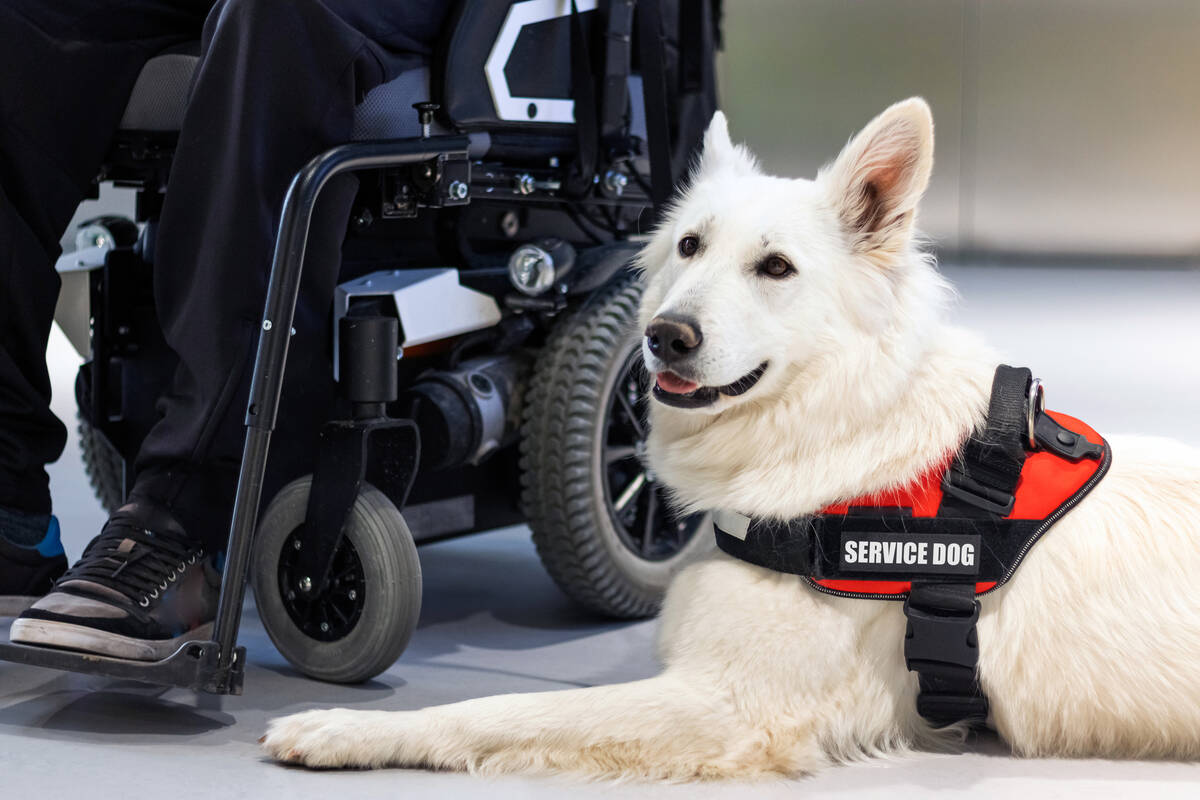Savvy Senior: Service dogs can help older people with disabilities
Dear Savvy Senior: What can you tell me about service dogs for seniors with disabilities? My 67-year-old father has chronic arthritis and Parkinson’s disease, and I’m wondering if an assistance dog could help make his life a little easier. —Dog Loving Leah
Dear Leah: For people with disabilities and even medical conditions, service dogs can be fantastic help, not to mention great sources of companionship and security. But service dogs can be very expensive to purchase, and the waiting list to get one can be long. Here’s what you should know.
While most people are familiar with guide dogs that help people who are blind or visually impaired, there are also a variety of assistance dogs trained to help people with physical disabilities, hearing loss and various medical conditions.
Unlike most pets, assistance dogs are highly trained canine specialists — often golden retrievers, Labrador retrievers, and German shepherds — that know approximately 40 to 50 commands, are amazingly well-behaved and calm and are permitted to go anywhere the public is allowed. Here’s a breakdown of the different types of assistance dogs:
■ Service dogs: These dogs are specially trained to help people with physical disabilities due to multiple sclerosis, spinal cord injuries, Parkinson’s disease, chronic arthritis and other conditions. They help by performing tasks their owner cannot do or has trouble doing, like carrying or retrieving items, picking up dropped items, opening and closing doors, turning light switches on and off, helping with balance, assisting with household chores, barking to indicate that help is needed and more.
Service dogs can also be trained to help people with medical conditions like epilepsy or other seizure disorders, autism, diabetes, PTSD and other psychiatric disabilities.
■ Guide dogs: For the blind and visually impaired, guide dogs help their owner get around safely by avoiding obstacles, stopping at curbs and steps, navigating shopping centers and buildings, finding doors, seats, pedestrian crossing buttons and more.
■ Hearing dogs: For those who are deaf or hearing impaired, hearing dogs can alert their owners to specific sounds such as ringing phones, doorbells, alarm clocks, smoke alarms, sirens or when someone calls out their name.
Finding a dog
If your dad is interested in getting a service dog, contact some credible assistance dog training programs. The Assistance Dogs International website (AssistanceDogsInternational.org) provides a listing of around 80 accredited members and 25 candidate programs in North America.
After you locate a few, you’ll need to find out which types of training dogs they offer, the areas they serve, how long their waiting list is and what they charge. Most dog training programs charge $10,000 to $40,000 or more for a fully trained service dog. However, most programs can assist with fundraising or grant applications for those in need. None of that cost is covered by health insurance or Medicare.
To get an assistance dog, your dad will need to show proof of his disability, which his physician can provide, and he’ll have to complete an application and go through an interview process.
Send your senior questions to: Savvy Senior, P.O. Box 5443, Norman, OK 73070, or visit SavvySenior.org.

















